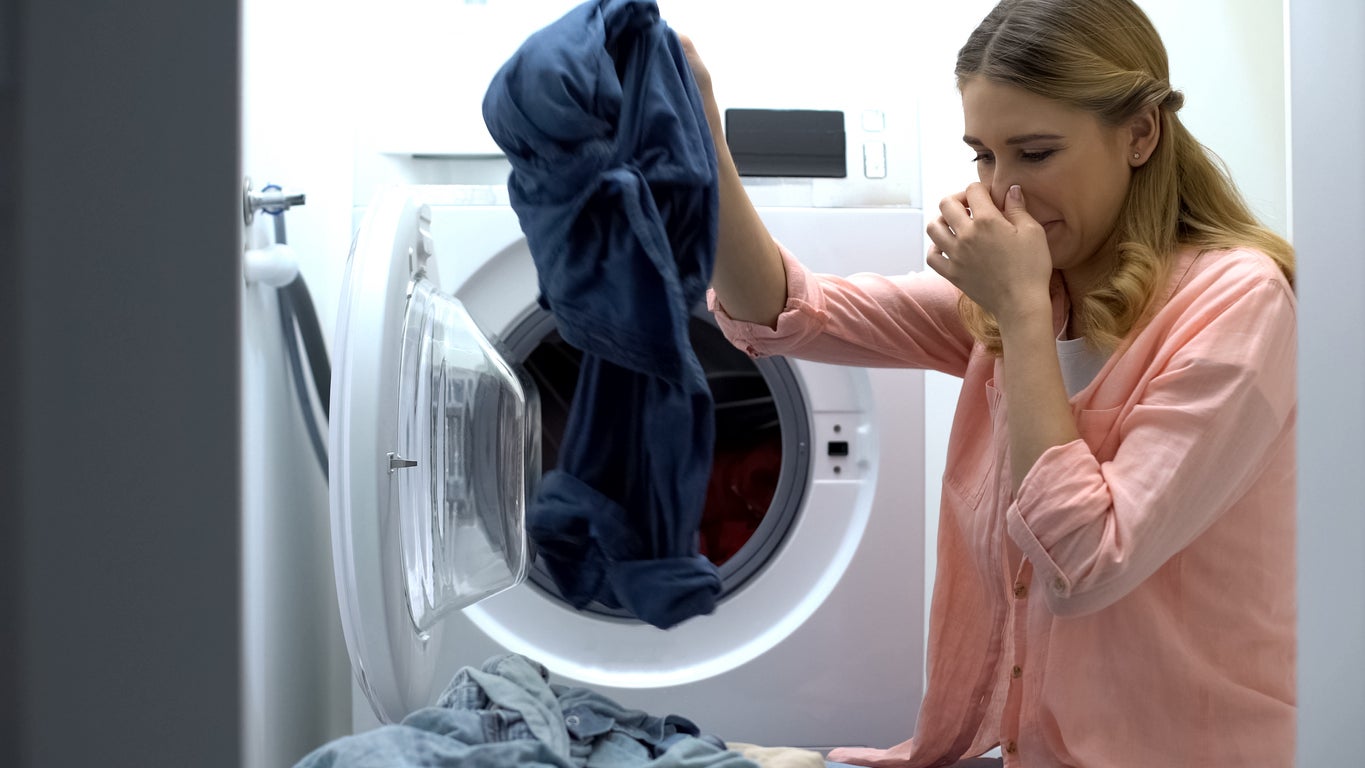

Articles
Why Does Laundry Room Smell Like Rotten Eggs
Modified: October 20, 2024
Learn how to get rid of the foul smell in your laundry room with these helpful articles. Say goodbye to the terrible odor of rotten eggs for good.
(Many of the links in this article redirect to a specific reviewed product. Your purchase of these products through affiliate links helps to generate commission for Storables.com, at no extra cost. Learn more)
Introduction
Have you ever walked into your laundry room only to be greeted by a foul odor resembling the smell of rotten eggs? It’s not a pleasant experience and can leave you wondering what could be causing such an unpleasant scent. The truth is, there are several possible causes for a laundry room smelling like rotten eggs, and understanding these causes can help you identify and resolve the issue.
Unpleasant odors in the laundry room can not only make the room uncomfortable to be in but also transfer onto your clothes, leaving them with an unpleasant smell. It’s important to address the problem promptly to ensure a fresh and clean laundry space and properly laundered clothes.
In this article, we will explore the possible causes of a laundry room smelling like rotten eggs and provide solutions to help you eliminate the odor and maintain a fresh and pleasant laundry environment.
Key Takeaways:
- Say goodbye to the rotten egg smell in your laundry room by tackling bacteria build-up, clearing clogged drains, and preventing mold growth. Keep your laundry space fresh and pleasant with these proactive solutions.
- Eliminate sewer gas odors and sulfur smells in your laundry room by inspecting plumbing, testing water, and installing filtration systems. Enjoy clean, odor-free laundry with these effective remedies.
Read more: Why Does Washer Smell Like Rotten Eggs
Possible Causes of the Smell
There are several potential causes for a laundry room smelling like rotten eggs. Understanding these causes can help you determine the source of the odor and take appropriate measures to resolve the issue. Let’s explore some common culprits:
- Build-up of Bacteria in the Washing Machine: Over time, bacteria and mold can accumulate in the nooks and crannies of your washing machine, especially in the rubber seals and detergent dispensers. These bacteria can produce foul-smelling gases, causing your laundry room to smell like rotten eggs.
- Clogged Washing Machine Drain: If the drain of your washing machine is clogged or partially blocked, water can accumulate and create a breeding ground for bacteria. The stagnant water can emit a sulfur-like odor, giving your laundry room an unpleasant smell.
- Mold and Mildew Growth in the Laundry Room: Moisture and humidity in the laundry room can contribute to the growth of mold and mildew. These fungi emit a musty and unpleasant smell that can resemble the odor of rotten eggs. Common areas for mold and mildew growth include walls, floors, and even clothing if left damp for too long.
- Sewer Gas Odors: In some cases, the smell of rotten eggs in the laundry room may be attributed to sewer gas leaks. If there is a crack or a loose connection in the sewer line or plumbing fixtures, sewer gases can escape into your home, resulting in a foul odor.
- Sulfur in Water Supply: The presence of sulfur in your water supply can contribute to a rotten egg-like odor. If your washing machine is connected to a water source that contains high levels of sulfur, the smell can transfer to your laundry room and linger on your clothes.
These are just a few possible causes for a laundry room smelling like rotten eggs. By identifying the specific cause in your case, you can implement targeted solutions to eliminate the odor and maintain a fresh and pleasant laundry environment.
Build-up of Bacteria in the Washing Machine
One of the common causes of a laundry room smelling like rotten eggs is the build-up of bacteria in the washing machine. Over time, bacteria and mold can accumulate in the nooks and crannies of your washing machine, particularly in the rubber seals, detergent dispensers, and even the drum itself. This build-up of bacteria can produce foul-smelling gases, resulting in an unpleasant odor.
To tackle this issue, it is important to regularly clean and disinfect your washing machine to prevent the growth of bacteria. Here are some steps you can take to get rid of the bacteria and eliminate the smell:
- Empty the washing machine: Start by completely emptying the washing machine. Remove any clothes, laundry detergent, or fabric softener from the machine.
- Clean the rubber seals: The rubber seals, often found around the door or on the drum, are common areas where bacteria and mold can accumulate. Use a solution of warm water and mild detergent to wipe down the seals, removing any visible dirt or grime. Pay extra attention to any crevices or folds where bacteria can hide.
- Remove and clean the detergent dispensers: Many washing machines have removable detergent dispensers. Take out the dispensers and clean them thoroughly using warm water and mild detergent. Scrub away any residue or build-up to ensure they are clean and free from bacteria.
- Run a cleaning cycle: Some washing machines have a specific cleaning cycle designed to remove bacteria and odors. If your machine has this feature, it is recommended to run a cleaning cycle using hot water and a specialized washing machine cleaner. This will help eliminate any remaining bacteria that may be causing the unpleasant smell.
- Leave the door open after each use: After each laundry cycle, it is important to leave the washing machine door ajar to allow air to circulate and prevent the growth of bacteria and mold. This will help keep your washing machine fresh and minimize any potential odors.
By regularly cleaning and disinfecting your washing machine, you can effectively get rid of the build-up of bacteria and eliminate the rotten egg smell in your laundry room. It is recommended to follow the manufacturer’s guidelines for cleaning and maintenance to ensure the longevity and optimal performance of your washing machine.
Clogged Washing Machine Drain
A clogged washing machine drain can be another potential cause for a laundry room smelling like rotten eggs. If the drain of your washing machine is clogged or partially blocked, water can accumulate, creating a breeding ground for bacteria. The stagnated water can emit a sulfur-like odor, giving your laundry room an unpleasant smell.
To address a clogged washing machine drain and eliminate the odor, follow these steps:
- Check for visible blockages: Remove any visible debris or blockages from the drain area. Inspect both the drain itself and the drain hose connected to the back of the washing machine. Use gloves or a small brush to remove any lint, hair, or other substances that may be obstructing the drainage.
- Flush the drain with hot water: Run hot water down the drain for several minutes to help break down any remaining debris and clear the clog. The hot water can help loosen and dissolve trapped soap scum, detergent residue, and other deposits that may be causing the blockage.
- Use a drain cleaner: If flushing the drain with hot water does not fully resolve the clog, you can try using a drain cleaner specifically designed for washing machine drains. Follow the instructions on the product carefully, as different cleaners may have different application methods and contact times. Be sure to use drain cleaners that are safe for your plumbing system.
- Call a professional plumber: If the clog persists, it may be time to call a professional plumber. They have specialized tools and equipment to effectively clear stubborn clogs and ensure proper drainage. A professional can also inspect the plumbing system for any underlying issues that may be contributing to the clog.
Regularly maintaining and cleaning the washing machine drain can help prevent blockages and reduce the chances of a foul odor in your laundry room. Additionally, avoid overloading the washing machine with excessive laundry, as this can put strain on the drainage system and increase the likelihood of clogs.
By addressing a clogged washing machine drain promptly, you can eliminate the source of the odor and restore a fresh and pleasant environment in your laundry room.
Mold and Mildew Growth in the Laundry Room
Mold and mildew thrive in damp and humid environments, making the laundry room a perfect breeding ground for these fungi. If your laundry room has moisture issues or inadequate ventilation, it can lead to mold and mildew growth, resulting in a musty and unpleasant smell that can resemble the odor of rotten eggs.
To address mold and mildew growth in the laundry room and eliminate the unpleasant smell, consider the following steps:
- Identify and eliminate sources of moisture: Inspect the laundry room for any sources of moisture, such as leaks or standing water. Repair any leaks and ensure proper drainage. If there are any damp areas, use a dehumidifier to reduce humidity levels and prevent mold and mildew growth.
- Clean visible mold and mildew: If you notice any visible mold or mildew growth on surfaces such as walls, floors, or shelving, it is important to clean it promptly. Use a mixture of water and mild detergent or a specialized mold and mildew cleaner to scrub away the fungi. Wear gloves and a mask to protect yourself from exposure.
- Prevent future mold and mildew growth: To prevent mold and mildew from returning, ensure proper ventilation in the laundry room. Use exhaust fans or open windows to promote air circulation. After doing laundry, promptly remove damp clothes from the washing machine and dry them thoroughly to prevent moisture accumulation.
- Use mold-resistant materials: Consider using mold-resistant materials in your laundry room, especially in areas prone to moisture, such as walls and flooring. These materials are designed to resist mold and mildew growth, reducing the chances of an unpleasant odor.
- Regularly clean and dry laundry accessories: Items such as laundry baskets, hampers, and ironing boards can harbor moisture and provide a breeding ground for mold and mildew. Clean these accessories regularly and ensure they are completely dry before storing them in the laundry room.
By addressing mold and mildew growth in the laundry room and implementing preventive measures, you can eliminate the musty smell and maintain a fresh and clean environment. Regular maintenance and vigilance are key to preventing future mold and mildew issues in your laundry room.
Read more: Why Does My Sink Smell Like Rotten Eggs
Sewer Gas Odors
If your laundry room smells like rotten eggs, it is possible that you are experiencing sewer gas odors. Sewer gas is a mixture of various gases, including hydrogen sulfide, that can be emitted by sewer lines or plumbing fixtures when there is a crack or a loose connection. This can result in a foul odor similar to that of rotten eggs.
To address sewer gas odors and restore a pleasant smell in your laundry room, follow these steps:
- Inspect the plumbing system: Examine the plumbing lines in your laundry room for any visible signs of leaks or damaged pipes. Look for cracks, loose connections, or gaps in the pipes that could allow sewer gases to escape. If you notice any issues, it is recommended to call a professional plumber to assess and repair the plumbing system.
- Check the floor drain: The floor drain in the laundry room can sometimes become dry, allowing sewer gases to enter the room. Pour a bucket of water into the drain to create a water seal, which will help prevent the gases from escaping into your home. Repeat this process periodically to ensure the water seal remains intact.
- Install or replace traps: Plumbing traps are designed to prevent sewer gases from entering your living space. Make sure you have properly installed traps in your plumbing system, including beneath sinks and drains. If traps are old or worn out, consider replacing them to ensure they are functioning effectively.
- Address ventilation issues: Insufficient ventilation can exacerbate sewer gas odors. Ensure your laundry room has proper ventilation, which can help disperse any odor and prevent the build-up of gases. Consider installing an exhaust fan or opening windows to promote air circulation.
- Seek professional help if needed: If you are unable to identify the source of the sewer gas odors or if the issue persists, it is advisable to contact a professional plumber. They have the expertise and equipment to identify and resolve any underlying plumbing problems that may be causing the odors.
By addressing sewer gas odors in your laundry room, you can eliminate the foul smell and create a more pleasant environment. It is important to prioritize plumbing maintenance and ensure that any potential leaks or damaged pipes are promptly repaired to prevent the escape of sewer gases.
Sulfur in Water Supply
If your laundry room smells like rotten eggs, the culprit could be sulfur in your water supply. Sulfur is a naturally occurring mineral that can give off a distinct rotten egg smell when it reacts with certain bacteria or chemical compounds. If your washing machine is connected to a water supply that contains high levels of sulfur, the smell can transfer to your laundry room and linger on your clothes.
To address the issue of sulfur in your water supply and eliminate the rotten egg smell, consider the following solutions:
- Testing the water: Have your water supply tested to determine the sulfur levels. You can either purchase a home water testing kit or consult a professional to get accurate results. This will help you understand the severity of the issue and guide your actions accordingly.
- Install a water filtration system: Consider installing a whole-house water filtration system, particularly one that is designed to remove sulfur compounds. These systems use different filtration technologies such as activated carbon or oxidizing filters to remove sulfur, improving the smell and taste of your water.
- Use activated carbon filters: If a whole-house water filtration system is not feasible, you can install activated carbon filters on specific water sources, such as the washing machine’s water supply line. These filters can effectively remove sulfur compounds and reduce the unpleasant odor in your laundry room.
- Replace the anode rod: If you have a hot water heater, the anode rod inside it can react with the sulfur in the water, exacerbating the smell. Consider replacing the anode rod with one that is less reactive to reduce the likelihood of sulfur-related odors.
- Contact your water provider: If the sulfur issue is widespread in your area and not specific to your property, it may be worth contacting your water provider to inform them of the problem. They can investigate and take necessary actions to address the sulfur levels in the water supply.
Addressing the sulfur issue in your water supply will not only help eliminate the rotten egg smell in your laundry room but also improve the overall quality of your water. Consider the options mentioned above and choose the solution that best suits your needs and budget.
To eliminate the smell of rotten eggs in the laundry room, try cleaning the washing machine with a mixture of hot water, vinegar, and baking soda. Run a cycle with this solution to remove any built-up residue causing the odor.
Solutions to Get Rid of the Smell
If your laundry room smells like rotten eggs, it is essential to take action and eliminate the unpleasant odor. By addressing the underlying causes, you can effectively get rid of the smell and enjoy a fresh and pleasant laundry environment. Here are some solutions to consider:
- Clean and disinfect the washing machine: As mentioned earlier, the build-up of bacteria in the washing machine can contribute to the rotten egg smell. Regularly clean and disinfect the machine, paying attention to areas prone to bacterial growth such as rubber seals and detergent dispensers.
- Clear the washing machine drain: A clogged washing machine drain can lead to stagnant water and a foul odor. Check for any blockages and clean the drain thoroughly. If necessary, use a drain cleaner to remove stubborn clogs and ensure proper drainage.
- Prevent mold and mildew growth in the laundry room: Excess moisture and poor ventilation can encourage mold and mildew growth, resulting in a musty smell. Properly ventilate the room, address any moisture issues, and clean any visible mold or mildew promptly.
- Check and fix sewer gas leaks: Sewer gas odors can be highly unpleasant. Inspect your plumbing system for any leaks or damaged pipes that may be releasing sewer gases. Repair or replace any faulty components to prevent the odor from permeating your laundry room.
- Address the sulfur issue in the water supply: If your water supply contains high levels of sulfur, it can lead to a rotten egg smell. Test the water and consider installing a water filtration system to remove sulfur compounds. Alternatively, use activated carbon filters or replace reactive components to mitigate the smell.
Implementing these solutions will help you eliminate the smell and maintain a fresh and pleasant laundry room. However, it is important to remember that prevention is key. Regular maintenance, cleaning, and proper ventilation are essential to prevent odors from recurring. By addressing the root causes and maintaining a clean and well-maintained laundry space, you can enjoy a pleasant and odor-free environment.
Clean and Disinfect the Washing Machine
One of the key solutions to eliminate the smell of rotten eggs in your laundry room is to clean and disinfect your washing machine. Over time, bacteria and mold can accumulate in the nooks and crannies of your machine, producing foul-smelling gases that can permeate your laundry room. Regular cleaning and disinfection can help eliminate these odors and maintain a fresh and pleasant environment.
Follow these steps to effectively clean and disinfect your washing machine:
- Empty the washing machine: Start by removing any clothes, laundry detergent, or fabric softener from the machine. Ensure that the machine is completely empty before proceeding.
- Clean the rubber seals: The rubber seals, often found around the door or on the drum, are common areas where bacteria and mold can accumulate. Mix a solution of warm water and mild detergent, then use a cloth or sponge to thoroughly clean the seals, paying close attention to any grooves or crevices where dirt may be trapped.
- Remove and clean the detergent dispenser: Most modern washing machines have removable detergent dispensers. Take out the dispenser and wash it thoroughly with warm water and mild detergent. Scrub away any residue or buildup that may contribute to the unpleasant smell.
- Run a cleaning cycle: Many washing machines have a dedicated cleaning cycle that you can utilize to clean the internal components. Refer to your machine’s user manual for specific instructions on running the cleaning cycle. You can use a specialized washing machine cleaner or create your own by mixing equal parts of water and white vinegar. The cleaning cycle will help eliminate any remaining bacteria or mold within the machine.
- Leave the door open after each use: After completing your laundry, be sure to leave the washing machine door open for a while. This allows air to circulate inside the machine, preventing the growth of bacteria and mold that can cause unpleasant odors. This step is especially important if you have a front-loading machine, as these are more prone to moisture retention.
- Regular maintenance: To prevent the build-up of bacteria and maintain a fresh-smelling washing machine, incorporate regular maintenance into your routine. Wipe down the exterior of the machine regularly, clean the lint filter, and periodically check for any signs of mold or mildew. By staying proactive, you can prevent odors from returning.
By following these steps to clean and disinfect your washing machine, you can effectively eliminate the bacteria and mold that cause the rotten egg smell in your laundry room. Maintaining a clean and fresh washing machine will not only improve the odor but also ensure that your clothes come out smelling clean and fresh after every wash.
Read more: Why Does Laundry Room Smell Like Sewer
Clear the Washing Machine Drain
If your laundry room smells like rotten eggs, a clogged washing machine drain could be the culprit. A blocked drain can lead to stagnant water, creating the perfect environment for bacteria to thrive and emit a sulfur-like odor. Clearing the drain is essential to eliminate the smell and restore proper drainage in your washing machine.
Follow these steps to clear the washing machine drain and get rid of the unpleasant odor:
- Turn off the washing machine: Before beginning any maintenance or cleaning, make sure to turn off the washing machine and unplug it from the power source. Safety should always be your top priority.
- Locate the drain hose: The drain hose is usually located either behind the washing machine or next to it. It connects to the back of the machine and leads to your home’s plumbing system. Identify the drain hose to proceed with clearing the blockage.
- Check for any clogs: Inspect the drain hose for any visible clogs or obstructions. Blockages can be caused by a buildup of lint, hair, fabric, or other debris. Use gloves or a small brush to remove these unwanted materials, ensuring that the drain hose is clear and free from blockages.
- Clean the drain filter or pump: Some washing machines have a drain filter or pump that collects debris to prevent it from entering the drain. If your machine has this feature, locate the filter or pump and clean it according to the manufacturer’s instructions. This will help improve the overall drainage and prevent future clogs.
- Check the drain pipe: After clearing the drain hose, inspect the drain pipe that connects to your home’s plumbing system. Use a flashlight to look inside and identify any clogs or blockages. If you notice any debris, you may need to use a plumber’s snake or a pipe-cleaning tool to remove the obstruction.
- Run a test cycle: Once you have cleared the drain hose and pipe, run a test cycle with hot water to ensure that the drainage is working effectively. This will help flush out any remaining debris and verify that the odor has been eliminated.
Regularly clearing the washing machine drain is important to prevent future clogs and maintain proper drainage. Incorporate this step into your laundry routine to minimize the chances of encountering a foul odor in the future.
If you have followed these steps and are still experiencing issues with the draining or persistent odor, it may be necessary to consult a professional plumber who can provide further assistance in identifying and resolving the problem.
Prevent Mold and Mildew Growth in the Laundry Room
Mold and mildew thrive in damp and humid environments, and your laundry room can be a prime breeding ground if proper precautions are not taken. Preventing mold and mildew growth is crucial not only for eliminating the musty odor but also for maintaining a healthy and safe environment. Here are some preventive measures to consider:
- Ensure proper ventilation: Adequate ventilation is essential for reducing moisture levels in the laundry room. Install a vent fan or open windows during laundry cycles to allow moist air to escape and fresh air to circulate. Improved air circulation helps prevent the conditions necessary for mold and mildew growth.
- Reduce humidity: High humidity levels promote mold and mildew growth. Use a dehumidifier in the laundry room to keep humidity levels in check. Aim for humidity levels between 30% and 50% to create an environment that is less conducive to mold and mildew development.
- Fix leaks and moisture issues: Inspect your laundry room for any leaks or moisture sources. Address any plumbing leaks, and ensure that the room is properly sealed to prevent water seepage. Promptly fix any leaks or moisture problems to prevent excess dampness that can contribute to mold and mildew growth.
- Dry clothes properly: After completing a laundry cycle, remove damp clothes from the washing machine promptly. Leave enough space between garments when hanging them up to dry or use a clothesline outdoors if weather permits. Ensure clothes are completely dry before storing or placing them back in the laundry room. Damp clothing can contribute to increased humidity and create an environment for mold and mildew to thrive.
- Wipe down surfaces regularly: Regularly clean and wipe down surfaces in the laundry room to remove any moisture or detergent residue that may become a breeding ground for mold and mildew. Pay close attention to rubber seals, countertops, shelves, and any other areas prone to moisture accumulation.
- Inspect and clean the dryer vent: Lint buildup in the dryer vent can restrict airflow and increase humidity in the laundry room. Regularly clean the lint trap after each use and periodically inspect and clean the dryer vent to ensure proper ventilation and prevent mold growth.
By implementing these preventive measures, you can significantly reduce the risk of mold and mildew growth in your laundry room. Maintaining a dry, well-ventilated space will not only eliminate the musty smell but also contribute to healthier indoor air quality.
If you notice persistent mold or mildew growth despite taking preventive measures, it may be necessary to consult a professional for further evaluation and remediation of the issue.
Check and Fix Sewer Gas Leaks
If you detect a foul odor resembling rotten eggs in your laundry room, it could be a sign of sewer gas leaks. Sewer gas, which is a mixture of various gases including hydrogen sulfide, can escape from cracked or faulty sewer lines or faulty plumbing fixtures. It is important to address sewer gas leaks promptly to eliminate the unpleasant odor and maintain a safe and healthy environment. Here’s what you can do:
- Inspect for visible signs of leaks: Carefully examine the plumbing lines in your laundry room for any visible signs of leaks. Look for cracks, loose connections, or gaps in the pipes that may allow sewer gases to escape. If you notice any issues, it is important to take immediate action to fix them.
- Check plumbing fixtures: Inspect the plumbing fixtures in your laundry room, such as sinks, drains, and toilets, for any signs of leaks or faulty seals. These can also contribute to sewer gas odors. Ensure that all fixtures are properly connected and sealed, and replace any faulty parts as needed.
- Check floor drains and traps: Floor drains and traps can be common areas for sewer gas leaks. Floor drains should have water in the trap, as this creates a barrier preventing gases from coming up into the room. Pour water down the floor drain if you suspect it has dried out. Additionally, ensure that the traps beneath sinks and drains are properly installed and functioning effectively.
- Use smoke test: If you suspect a hidden sewer gas leak that you can’t visually identify, you can perform a smoke test. It involves releasing a non-toxic smoke into the plumbing system to detect any leaks. If the smoke escapes into your laundry room, it indicates a leak that needs attention from a professional plumber.
- Consult a professional plumber: If you are unable to locate or fix the sewer gas leak on your own, it is advisable to seek help from a professional plumber. They have the expertise and tools to accurately diagnose and repair any issues in your plumbing system, ensuring that sewer gases are properly contained.
Addressing sewer gas leaks is crucial not only for eliminating the unpleasant odor but also for ensuring the safety of your home’s plumbing system. Promptly fixing any leaks or faulty components will help prevent further damage and maintain a healthy and odor-free laundry room.
If the odor persists or you suspect a more significant issue with your sewer lines, it is recommended to consult a professional plumber who can thoroughly assess and address the problem.
Address the Sulfur Issue in the Water Supply
If your laundry room smells like rotten eggs, the cause could be the presence of sulfur in your water supply. Sulfur is a naturally occurring mineral that can impart an unpleasant odor to the water, giving it a distinct rotten egg smell. To eliminate this odor and improve the quality of your water, you need to address the sulfur issue in your water supply. Here are some solutions to consider:
- Test your water: Start by testing your water to confirm the sulfur levels. You can purchase a water testing kit or contact a professional water testing service. This will provide valuable information about the extent of the sulfur issue and guide your course of action.
- Install a water filtration system: Consider installing a whole-house water filtration system specifically designed to remove sulfur compounds. These systems utilize various filtration technologies such as activated carbon or oxidation to effectively remove sulfur, improving the smell and taste of your water.
- Use activated carbon filters: If installing a whole-house water filtration system is not feasible, you can use point-of-use activated carbon filters. These filters can be installed on specific water sources, such as the washing machine’s water supply line. They are effective in removing sulfur compounds and reducing the unpleasant smell in your laundry room.
- Replace the water heater anode rod: If you have a hot water heater, the anode rod inside the tank can react with the sulfur in the water, intensifying the smell. Consider replacing the anode rod with one made from a different material, such as aluminum or magnesium, that is less reactive with sulfur. Consult a professional if you need assistance with this task.
- Install a chlorine injection system: In some cases, injecting chlorine into the water supply can help neutralize the sulfur compounds, effectively eliminating the smell. This method requires professional installation and maintenance, so consult with a water treatment specialist to determine if it is suitable for your situation.
- Contact your water provider: If the sulfur issue is widespread in your area and not limited to your property, it may be beneficial to contact your water provider. They can investigate the source of the sulfur and take appropriate measures to mitigate the issue for the whole community.
By addressing the sulfur issue in your water supply, you can eliminate the rotten egg smell and improve the overall quality of your water. Consider the available options and choose the solution that best fits your needs and budget. Regular maintenance of any filtration systems is also necessary to ensure they continue to effectively remove sulfur and maintain clean, odor-free water in your laundry room.
If the sulfur odor persists or if you need assistance in choosing the right solution for your water supply, it is recommended to consult a water treatment professional who can provide expert advice and guidance.
Conclusion
Dealing with a laundry room that smells like rotten eggs can be a frustrating and unpleasant experience. However, by understanding the possible causes of the odor and implementing the appropriate solutions, you can effectively eliminate the smell and maintain a fresh and pleasant laundry environment.
We explored various causes of a laundry room smelling like rotten eggs, including the build-up of bacteria in the washing machine, clogged drains, mold and mildew growth, sewer gas leaks, and sulfur in the water supply. Each of these issues requires specific steps to address and resolve the problem.
To combat the smell, it is important to clean and disinfect the washing machine regularly, clear any clogs in the drain, prevent mold and mildew growth through proper ventilation and moisture control, check for and fix sewer gas leaks, and address the sulfur issue in your water supply using filtration systems or other appropriate methods.
Remember, prevention is key to maintaining a fresh-smelling laundry room. Perform regular maintenance on your washing machine, monitor your plumbing system for leaks, ensure proper ventilation and humidity control, and address any water quality issues as they arise.
Maintaining a clean and odor-free laundry room not only improves the overall space but also ensures that your clothes come out fresh and clean after every wash. By implementing the solutions discussed in this article and practicing good laundry room maintenance, you can enjoy a pleasant and inviting space for all your laundry needs.
So don’t let the smell of rotten eggs linger in your laundry room any longer. Follow these steps and regain a fresh and enjoyable laundry environment.
Frequently Asked Questions about Why Does Laundry Room Smell Like Rotten Eggs
Was this page helpful?
At Storables.com, we guarantee accurate and reliable information. Our content, validated by Expert Board Contributors, is crafted following stringent Editorial Policies. We're committed to providing you with well-researched, expert-backed insights for all your informational needs.
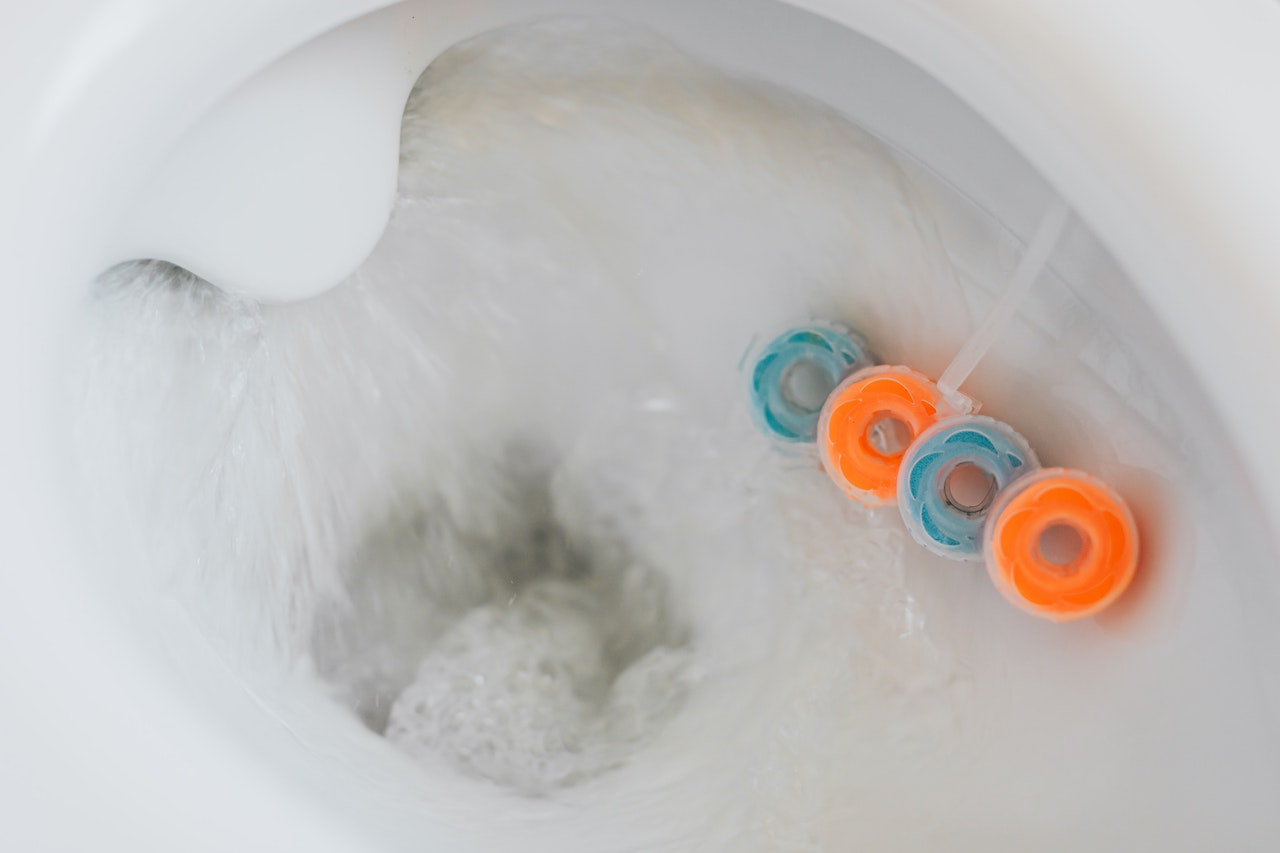
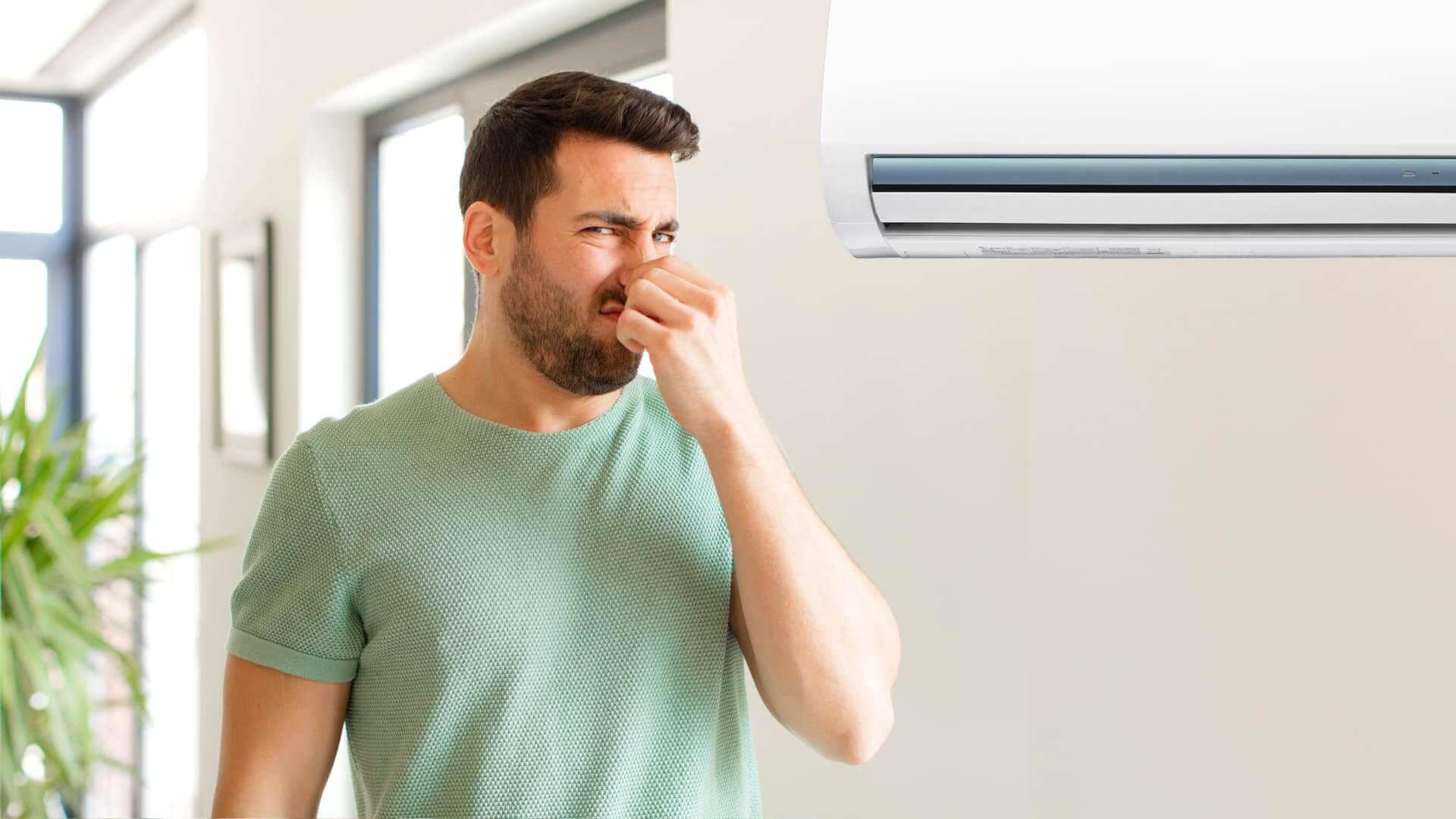
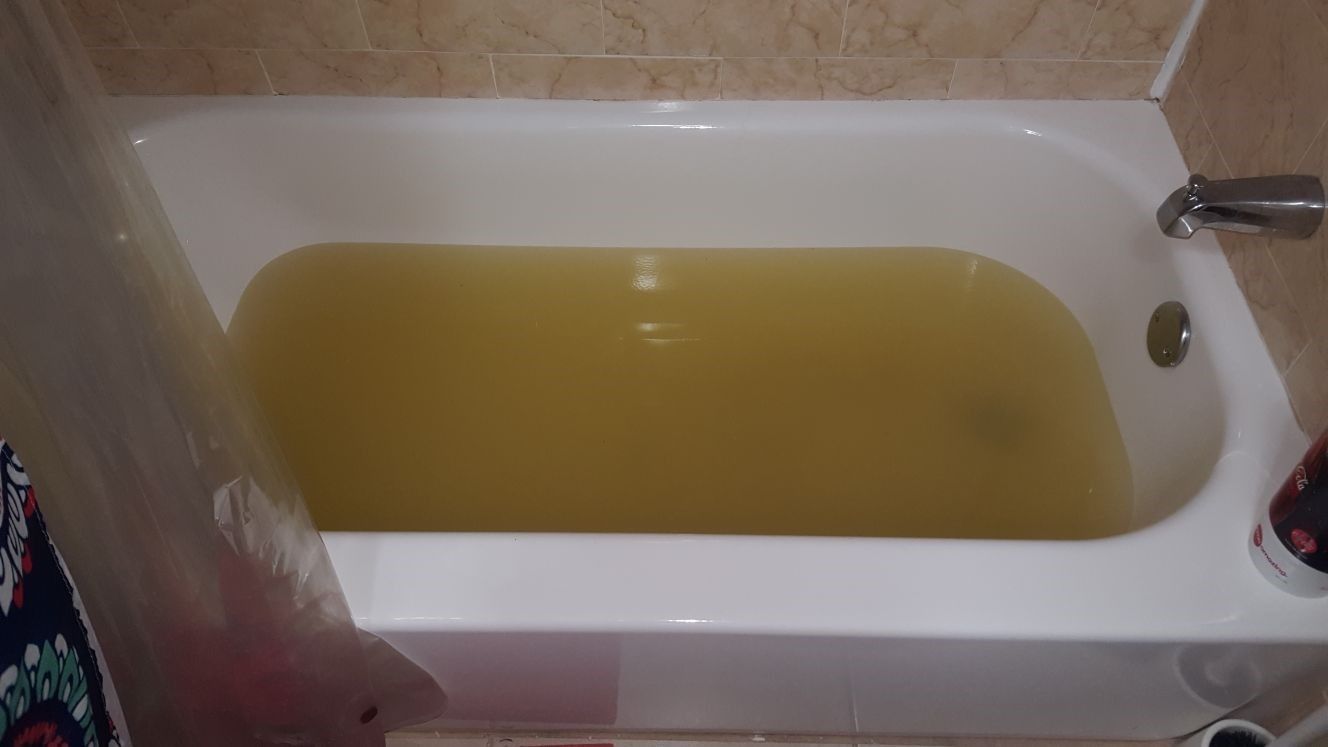


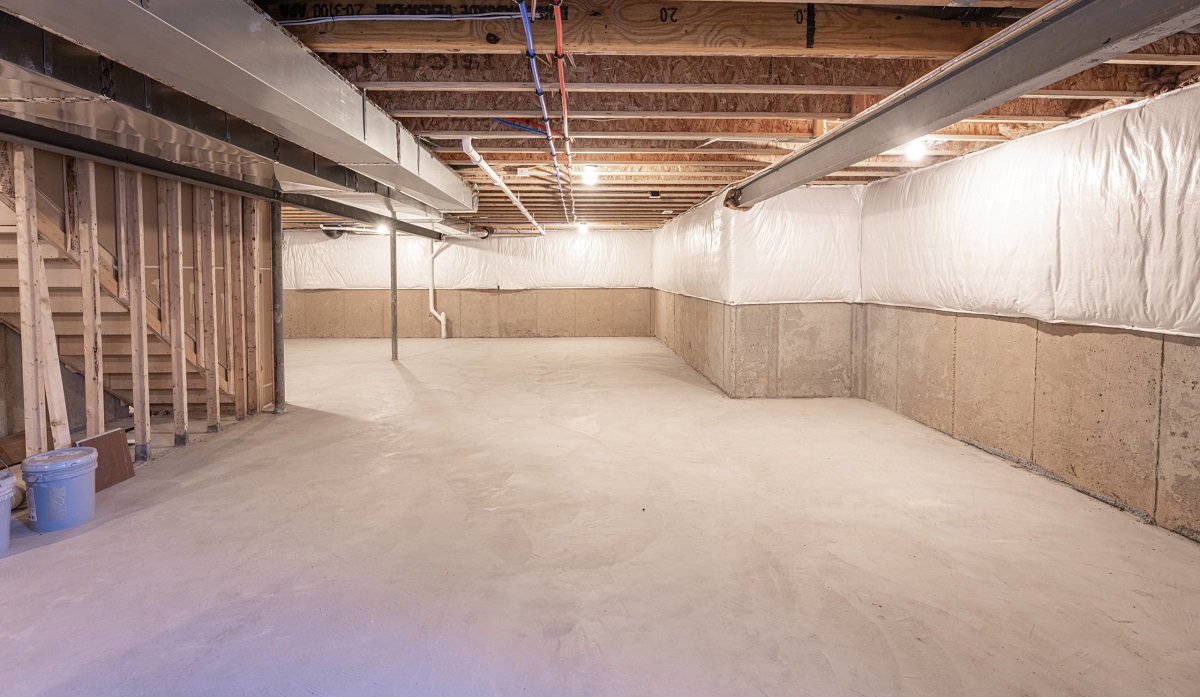
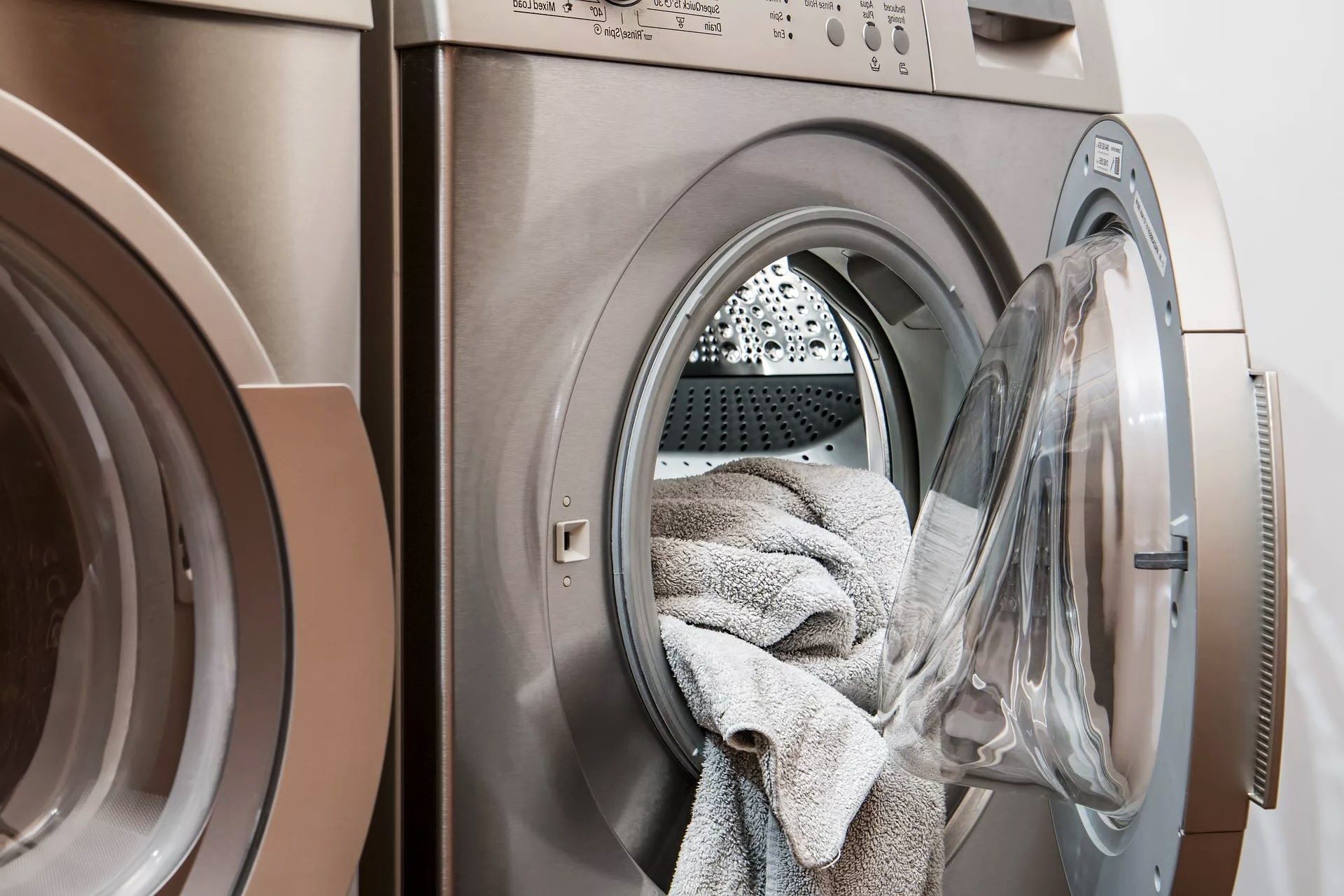


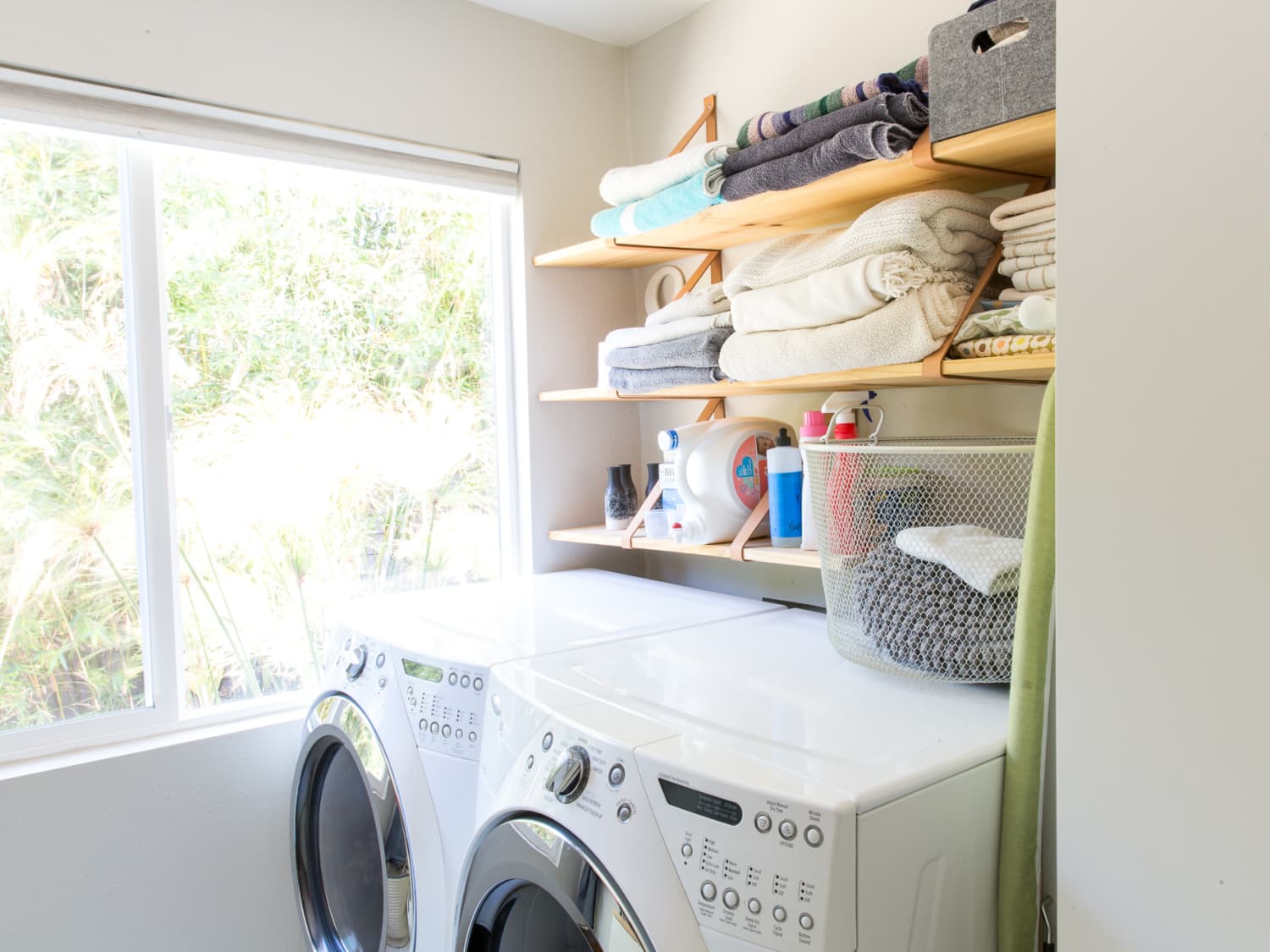

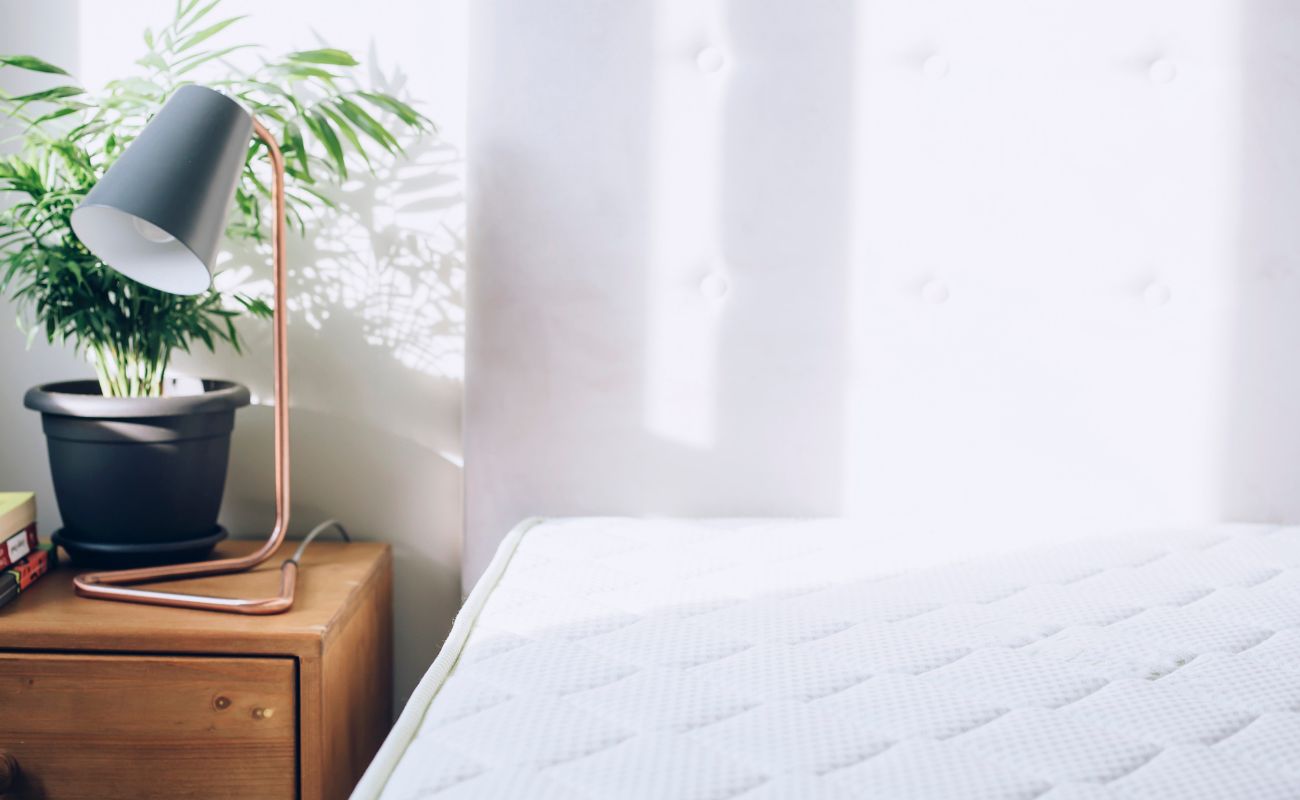

0 thoughts on “Why Does Laundry Room Smell Like Rotten Eggs”